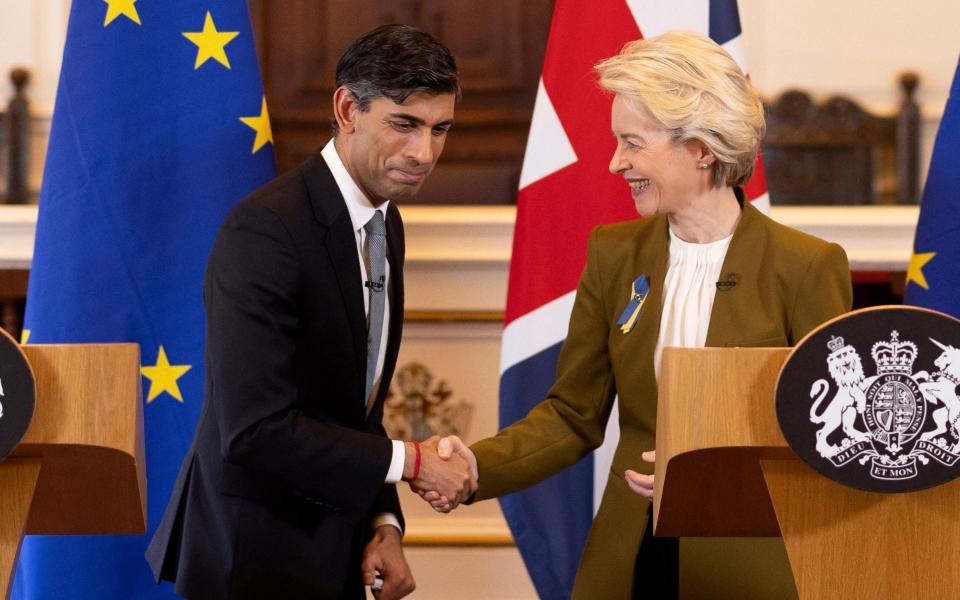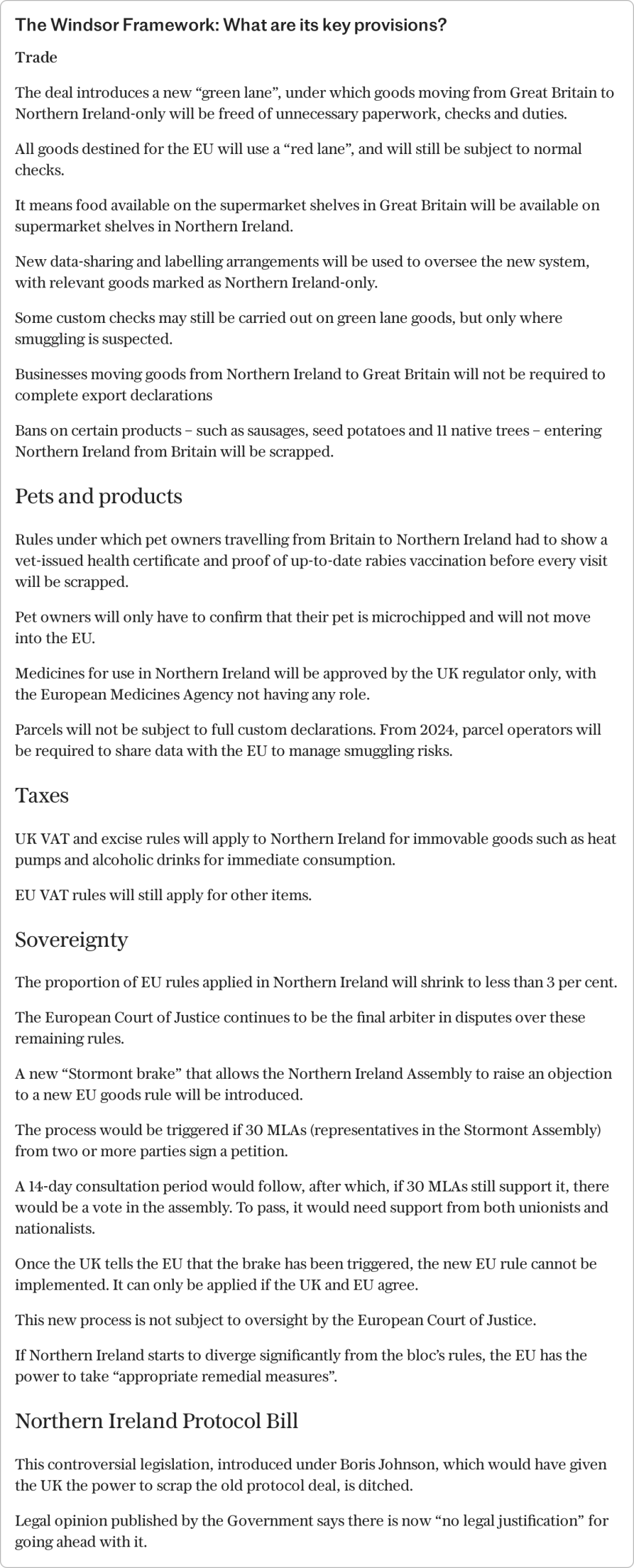
Rishi Sunak’s Brexit deal to unblock trade between Britain and Northern Ireland will not solve the problems faced by businesses, supermarket chiefs have warned.
Food retailers and suppliers, including meat and dairy trade associations and Marks & Spencer, have ruled out full use of the fast-track ‘green lane’ customs system when it comes into force in October due the complexity and costs involved.
The system – at the heart of the Windsor framework agreed earlier this year by Prime Minister and European Commission President Ursula von der Leyen – allows goods to cross the Irish Sea without physical checks and with minimal paperwork if they are labeled as ‘not for EU’.
However, insiders said it requires a change to the packaging of thousands of items, which means changes to production lines. As a result, many products will not be ready in time for October, when the rules come into force for meat and dairy.
Although changes are likely to be made to the packaging of more products in the future, in some cases the expense involved means this will not happen at all.
Goods without a label will have to remain in the “red lane”, which means that they will be subject to full customs checks.
Andrew Opie, food director at the British Retail Consortium, said: “As retailers work hard to be fully compliant by October, we are very concerned that unless the government quickly resolves issues such as labeling and other checks on products transported to Northern Ireland, supermarkets will not be able to maximize their use of the green lane, creating inevitable disruption to their supply chains.
Supermarkets have still not seen the full list of items that could go through the ‘green’ and ‘red’ lanes, according to industry sources.
A source at one of Britain’s four biggest supermarkets said: ‘Most retailers are likely to have to use the red route for some products to begin with just because of labeling requirements, we don’t know yet. that they are in detail.”

It raises new questions about whether Mr Sunak’s Windsor Framework Agreement has been as successful as originally claimed. Announcing the deal earlier this year, the Prime Minister said it was ‘removing any sense of border in the Irish Sea’.
However, supermarket and food bosses are increasingly concerned about what the fractional system will look like when it is implemented.
A spokesperson for M&S said: “The Windsor Framework is an important step forward for Northern Ireland, but the details it contains – in particular the labeling requirements – come with costs and complexity that will take time to be fully implemented.”
Nick Allen, chief executive of the British Meat Processors Association, said: “It may not just be retailers starting to insist on going through the red channel, it could be that we could see it in the food sector as well. Restoration.
“You could say some of the catering companies, McDonald’s or whoever, could say ‘we don’t want the restriction of putting something in Northern Ireland and not being able to go south’.”
Retail insiders have suggested that businesses selling to both Northern Ireland and the Republic of Ireland would face even higher costs from the change, as they would have to produce both labeled and unlabeled packaging. labeled.
A source suggested this might require them to use different supply chains for the two different routes.
Another industry insider said there was additional complexity in relation to products which had been imported from the rest of the world before being sent from Britain to Northern Ireland, which risked being excluded from the green lane.
There has also been confusion over the extent of labeling requirements for products remaining in Northern Ireland.
As The Telegraph revealed in May, the plans being discussed included requiring supermarkets to put labels stating that food could not be sent to the EU not only on individual food packages, but also on boxes containing products and on supermarket shelves.
A spokesperson for Dairy UK said: ‘The Green Lane system is expected to simplify the administrative processes needed to send goods from GB to Northern Ireland.
“However, they present some challenges, mainly with regard to the labeling on the packaging.
“There are still outstanding issues that still need to be resolved in this area, which creates some uncertainty. In light of this, some operators may choose to continue with the Red Lane arrangements they are now familiar with.
A spokesman for the Department for Environment, Food and Rural Affairs (DEFRA) said: “The Windsor framework solves the practical problems of the old protocol and preserves Northern Ireland’s place in the our Union.
“We are working closely with businesses in Northern Ireland to help them prepare, including publishing detailed guidance and offering financial support.”
Broaden your horizons with award-winning British journalism. Try The Telegraph free for 1 month, then get a year for just $9 with our exclusive US offer.

